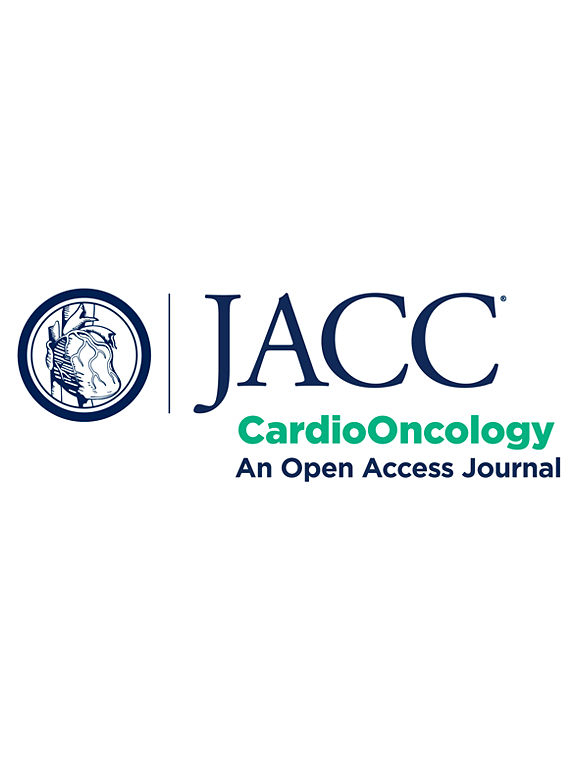骨髓增生性肿瘤患者的肺动脉高压和心力衰竭:JACC:心脏肿瘤学最新进展综述。
IF 12.8
1区 医学
Q1 CARDIAC & CARDIOVASCULAR SYSTEMS
引用次数: 0
摘要
骨髓增生性肿瘤(mpn)患者患心血管疾病的风险增加。虽然血栓形成是一种公认的并发症,但新出现的证据表明,非血栓性疾病,包括心力衰竭(HF)和肺动脉高压(PH),也很普遍,并与不良的心血管和血液学结果相关。临床和临床前数据表明,mpn与心肌病、心衰以及毛细血管前和毛细血管后PH的发生和进展存在共同的病理生理学联系。最近的研究进一步支持了一种双向关系,即心衰和PH与血液学进展相关,反之亦然。阐明这些相互作用的机制可能会发现新的治疗靶点,并为临床管理提供信息。在这里,作者回顾了mpn患者HF和PH的病理生理学和影响。本文章由计算机程序翻译,如有差异,请以英文原文为准。
Beyond Thrombosis: Pulmonary Hypertension and Heart Failure in Patients With Myeloproliferative Neoplasms
Patients with myeloproliferative neoplasms (MPNs) are at increased risk for cardiovascular disease. Although thrombosis is a well-recognized complication, emerging evidence indicates that nonthrombotic conditions, including heart failure (HF) and pulmonary hypertension (PH), are also prevalent and associated with adverse cardiovascular and hematologic outcomes. Clinical and preclinical data suggest a shared pathophysiology linking MPNs to the development and progression of cardiomyopathy, HF, and both precapillary and postcapillary PH. Recent studies further support a bidirectional relationship, in which HF and PH are associated with hematologic progression and vice versa. Elucidating the mechanisms underlying these interactions may uncover novel therapeutic targets and inform clinical management. Here, the authors review the pathophysiology and impact of HF and PH in patients with MPNs.
求助全文
通过发布文献求助,成功后即可免费获取论文全文。
去求助
来源期刊

Jacc: Cardiooncology
Multiple-
CiteScore
12.50
自引率
6.30%
发文量
106
期刊介绍:
JACC: CardioOncology is a specialized journal that belongs to the esteemed Journal of the American College of Cardiology (JACC) family. Its purpose is to enhance cardiovascular care for cancer patients by publishing high-quality, innovative scientific research and sharing evidence-based knowledge.
The journal aims to revolutionize the field of cardio-oncology and actively involve and educate professionals in both cardiovascular and oncology fields. It covers a wide range of topics including pre-clinical, translational, and clinical research, as well as best practices in cardio-oncology. Key areas of focus include understanding disease mechanisms, utilizing in vitro and in vivo models, exploring novel and traditional therapeutics (across Phase I-IV trials), studying epidemiology, employing precision medicine, and investigating primary and secondary prevention.
Amyloidosis, cardiovascular risk factors, heart failure, and vascular disease are some examples of the disease states that are of particular interest to the journal. However, it welcomes research on other relevant conditions as well.
 求助内容:
求助内容: 应助结果提醒方式:
应助结果提醒方式:


